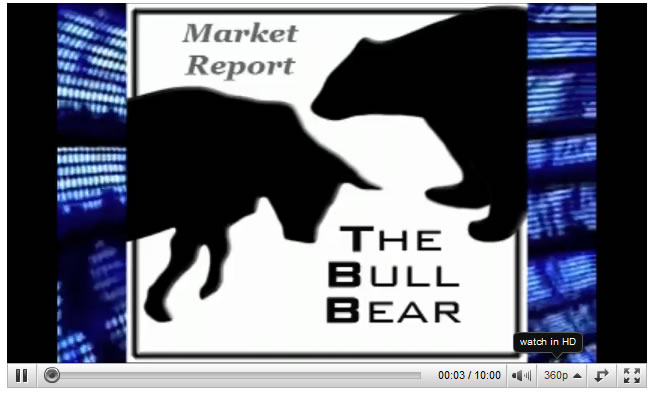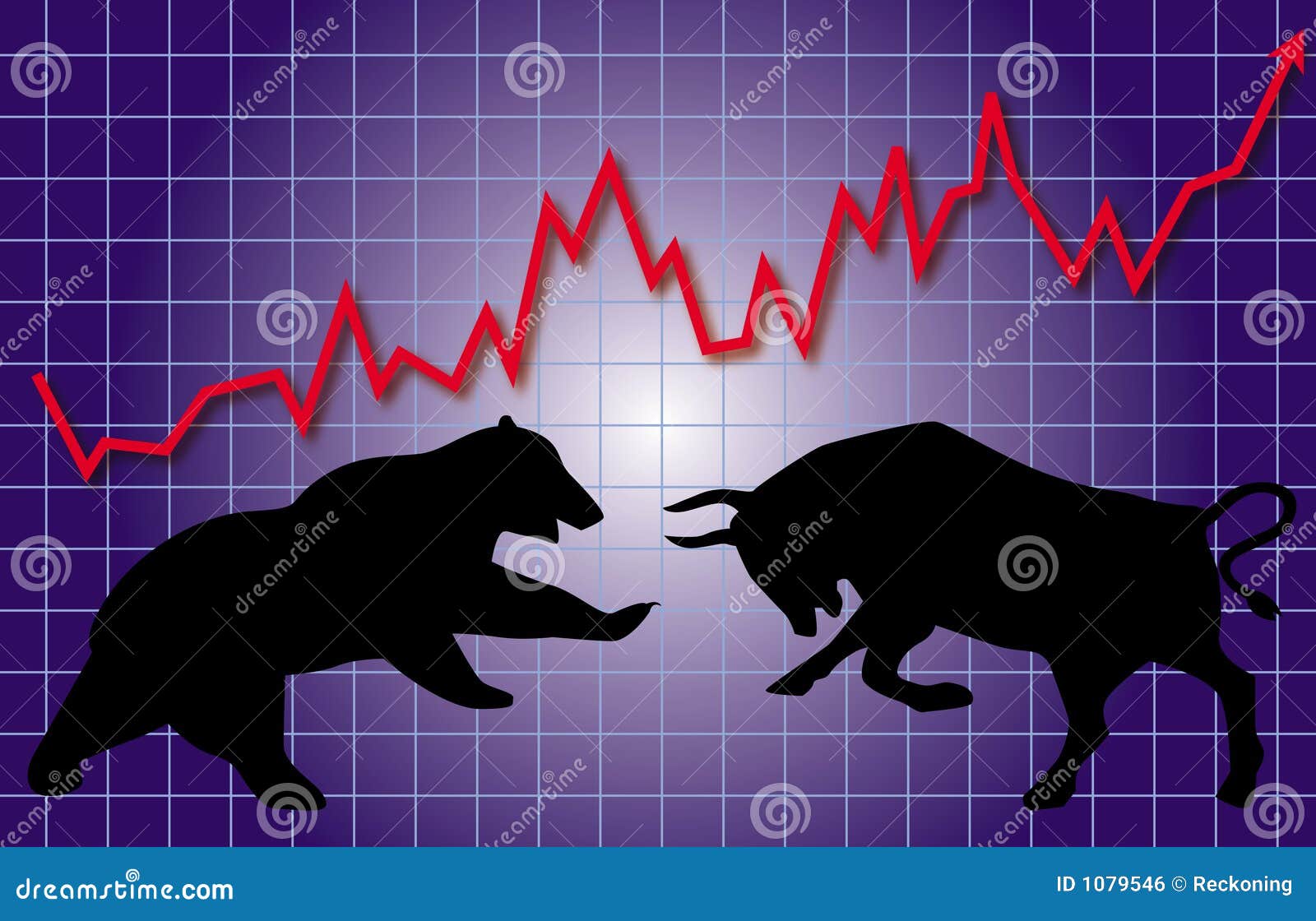Bulls bears in the stock market
Stock prices change often sometimes many times a minute as the result of market forces. By this we mean that share prices change because of fluctuations in their supply and demand. If more people want to buy a stock at a given moment demand than sell it supply , then the price moves up. In our previous example of buying Apple Inc. Conversely, if more people are motivated to sell a stock than buy it, there would be greater supply than demand, and the price would fall.
Of course, for any trade to actually happen there needs to be exactly one buyer and one seller — so the number of buyers and sellers is technically the same. What we mean here is the number of motivated buyers or sellers, i.
For example, if XYZ Corp. Working backwards, one can determine the market value of a company thus by multiplying the share price by the number of shares. The question then becomes what causes fluctuations in the value of the corporation?
A company has stuff and it sells stuff. The stuff it has — buildings, machinery, patents, money in the bank, etc. But companies are primarily in business of trying to make a profit, and in doing so they earn cash by selling products or services, so the total value of a company has to do with the stuff it owns now and the cash flows it will receive in the future.

The value of the stuff it owns now is fairly easy to determine, but the value of all the future cash flow streams is a bit trickier to nail down — and it is this piece that is responsible for market gyrations. How much to discount these future cash flows depends on a lot of things including the cost of capital which is the cost to borrow or find investment, and this depends on interest rates , the riskiness of the business in the stock market this is often estimated using beta , and the foregone cost of doing nothing and keeping your money in the bank the opportunity cost or risk-free rate.
Once an appropriate discount rate has been estimated, the hard part is to figure out what future cash flows will be — a month from now, a year from now, five years from now. Sentiment and expectations are a big component of these predictions, and financial analysts try to figure these amounts out in a number of ways accounting for both company-specific factors and macro factors such as overall economic health.
If the current price is lower than their expected price, people will buy it. If it is higher, people will sell it.
Bulls, bears and animals of the stock market
When an economy is growing, people are spending and profits are rising. Companies invest in projects, expand their businesses and hire more people. Investors are optimistic and expectations of future cash flows rise, and stocks enter a bull market. Simply put, stock markets can fall when expectations of future cash flows decrease, making the prices of companies seem too high, therefore causing people to sell shares.
If many more people come to this decision than there are people to buy those shares, the price will fall until it reaches a level where people will begin to believe that they are fairly valued. At the most fundamental level, supply and demand in the market determines stock price in any given moment.
Market trend - Wikipedia
Price times the number of shares outstanding market capitalization is the value of a company. Comparing just the share price of two companies is meaningless. Theoretically, earnings are what affect investors' valuation of a company, but there are other indicators that investors use to predict stock price.
Trading Education & How To Trade Stocks | Online Trading Academy
It is investors' sentiments, attitudes and expectations that ultimately affect stock prices. There are many competing theories that try to explain the way stock prices move the way they do.
Unfortunately, there is no one theory that can explain everything. Dictionary Term Of The Day.

A measure of what it costs an investment company to operate a mutual fund. Latest Videos PeerStreet Offers New Way to Bet on Housing New to Buying Bitcoin? This Mistake Could Cost You Guides Stock Basics Economics Basics Options Basics Exam Prep Series 7 Exam CFA Level 1 Series 65 Exam. Sophisticated content for financial advisors around investment strategies, industry trends, and advisor education. Valuing Stocks By Adam Hayes, CFA Share. Different Types Of Stocks Stocks Basics: How Stocks Trade Stocks Basics: Trading Stocks and Order Types Stocks Basics: Valuing Stocks Stocks Basics: Stock markets around the world are off to their worst year ever, but understanding what stocks are will take the mystery out of their movements.
Cash in the bank is what every company strives to achieve. Find out how to determine how much a company is generating and keeping.
Volatile markets are a scary time for uneducated investors, but value investors use volatile periods as an opportunity to buy stocks at a discount. Value investing can make you money, but you have to look for traps. Overvalued stocks often correct, which means investors need to know when to get out. Cash flow analysis is a critical process for both companies and investors.
Find out what you need to know about it. Find out how to analyze the way a company spends its money to determine whether there will be any money left for investors.

Tune out the accounting noise and see whether a company is generating the stuff it needs to sustain itself. Find out how this ratio can help you evaluate companies and make investment decisions.
You may participate in both a b and a k plan. However, certain restrictions may apply to the amount you can Generally speaking, the designation of beneficiary form dictates who receives the assets from the individual retirement Discover why consultant Ted Benna created k plans after noticing the Revenue Act of could be used to set up simple, Purchase life insurance in your qualified retirement plan using pre-tax dollars.
Be aware of other ways that life insurance Content Library Articles Terms Videos Guides Slideshows FAQs Calculators Chart Advisor Stock Analysis Stock Simulator FXtrader Exam Prep Quizzer Net Worth Calculator.
Work With Investopedia About Us Advertise With Us Write For Us Contact Us Careers. Get Free Newsletters Newsletters. All Rights Reserved Terms Of Use Privacy Policy.